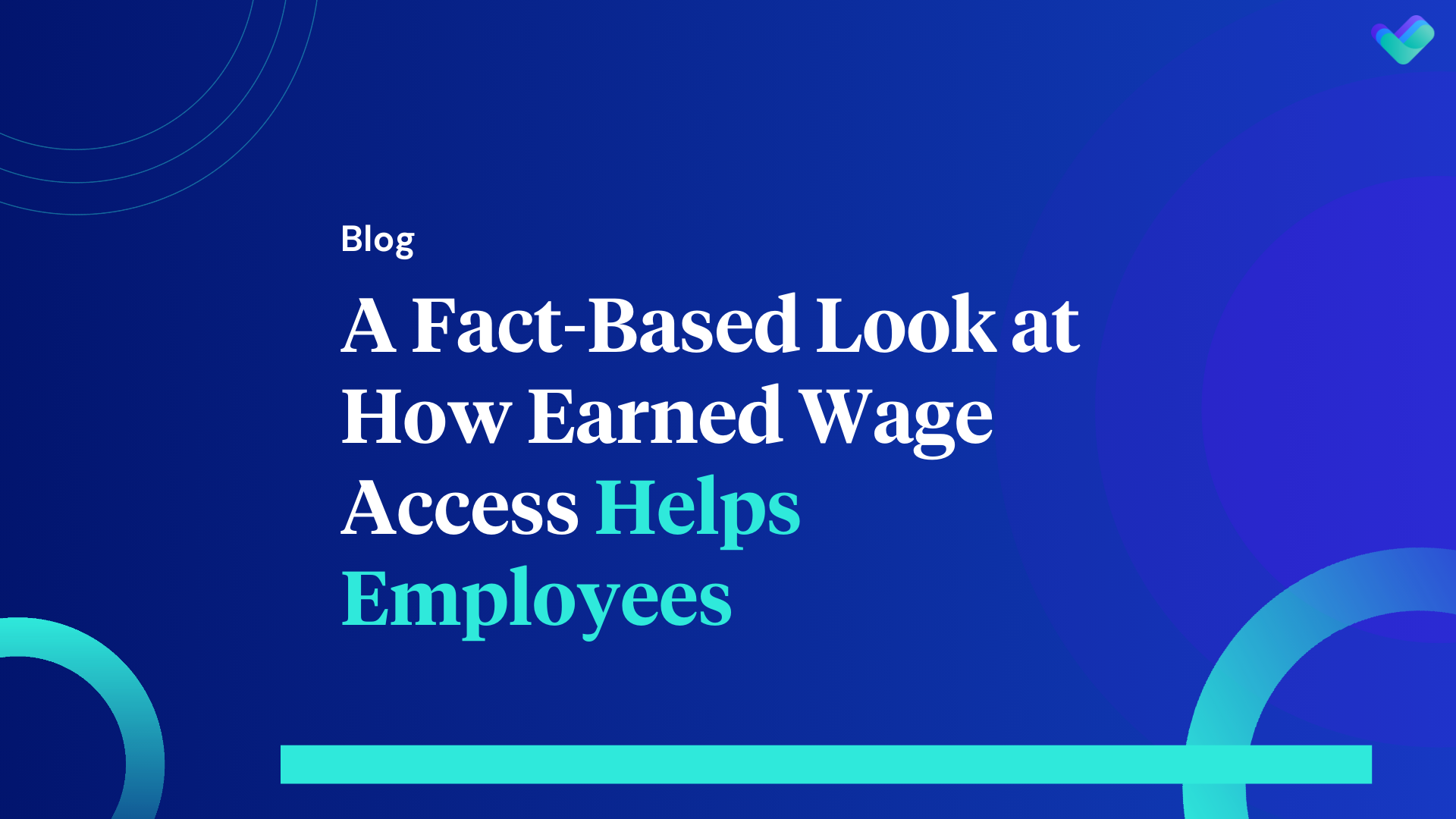Setting the Stage
Content Summary
- Employees increasingly know they don’t have to wait two weeks to be paid.
- Many already access earnings instantly through earned wage access (EWA).
- If your workforce sees competitors offering this flexibility while you don’t, you risk:
- Losing talent
- Damaging your employer brand
- Paying more in turnover costs
- EWA has shifted from a perk to a competitive necessity.
- Employers who offer it see stronger recruitment, higher retention, and better engagement.
- Tapcheck makes delivering on-demand pay seamless — no payroll disruption, fast implementation, immediate impact.
Introduction
Payday used to be simple: you worked your shifts, waited two weeks, and collected your paycheck. But that rhythm no longer matches the realities of modern life. Bills don’t wait until the 15th. Emergencies don’t schedule themselves for payday.
Today, more and more employees know there’s another option: earned wage access (EWA), also known as on-demand pay. They know they could be paid instantly — not in weeks. And if they discover that your competitors offer this flexibility while you don’t, what’s to keep them from leaving?
The Rise of On-Demand Pay Awareness
Earned wage access is no longer a fringe benefit. Millions of U.S. workers already have it through their employers, and word spreads quickly.
- Job boards highlight “daily pay” as a perk.
- Social media amplifies stories of companies offering instant access to wages.
- Employees talk to friends and family about how they’re getting paid faster.
The result? Workers who may have once accepted the two-week cycle as the norm now realize there’s a better way — and they’re starting to expect it.
Why Employees Want Instant Access to Pay
The demand isn’t about indulgence but rather survival and stability.
- Unexpected expenses: Car repairs, medical bills, or childcare emergencies don't wait for payday.
- Everyday needs: Groceries, gas, and rent often stretch workers between paychecks.
- Peace of mind: Even when they don’t use it, knowing EWA is available reduces financial stress.
When employees have access to their earnings, they’re less distracted, more reliable, and more engaged at work.
The Risk of Staying Silent
Here’s the uncomfortable truth: if your employees know EWA exists but can’t get it through you, they may not stay.
- Competitors who offer daily pay gain a recruiting advantage.
- Trained employees are at risk of leaving for companies with more flexible benefits.
- Your employer brand suffers when workers perceive you as behind the curve.
Retention is costly. Losing even a few employees to something as simple as pay flexibility can add up to thousands in replacement costs.
How Employers Benefit by Meeting the Expectation
The good news: the same benefit employees want is also a business advantage.
- Stronger recruitment: Job ads that mention EWA attract more applicants.
- Reduced turnover: Employees stay longer when their financial wellness is supported.
- Higher engagement: A less stressed workforce is a more reliable one.
By giving employees what they already know is possible, employers improve both morale and the bottom line.
How to Give Employees What They Already Want
Implementing EWA doesn’t have to mean rethinking payroll. With Tapcheck, employers can launch earned wage access seamlessly, without disrupting their existing systems.
It’s a low-effort, high-return way to deliver what employees are asking for: financial flexibility that keeps them loyal, productive, and engaged.
Thinking Ahead
Your employees may already know they could be paid today. The only question is whether they’ll get that flexibility from you — or from your competitor.
Offering earned wage access isn’t just about keeping up with industry trends. It’s about staying competitive in a labor market that’s already shifted. Companies that act now gain the edge in hiring, retention, and engagement. Those that wait risk being left behind.
Tapcheck makes it simple to offer on-demand pay — and keep your workforce where they belong: with you.
Want a broader review of earned wage access to learn how it can impact your business? Visit our guide here.





.png)
.png)



